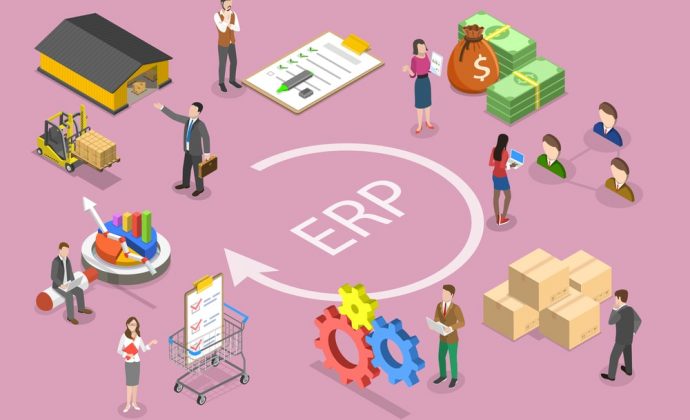In today’s fast-paced business world, companies constantly search for ways to innovate and stay ahead of the competition. One powerful solution for achieving this is digital transformation, and the ERP system is at the core of this transformation. These advanced software tools can integrate and automate various business processes, providing businesses with a comprehensive view of their operations and enabling them to make data-driven decisions. In this article, we’ll delve into the role ERP systems play in digital transformation and how they can assist companies in reaching their goals.
Enterprise Resource Planning (ERP) systems have become an essential tool for businesses of all sizes looking to transform their operations digitally. These systems provide a centralized platform for managing and automating various business processes, including accounting, inventory management, human resources, and more. The system can help companies streamline their operations, improve data insights, and drive efficiency in the digital era.
ERP system’s key benefit is its ability to automate repetitive tasks and reduce human errors. By automating processes such as invoicing, purchase orders, and inventory management, ERP systems can help companies save time and resources and reduce the risk of errors and inconsistencies. Super convenient. This leads to improved efficiency and productivity, which is especially important in today’s fast-paced digital environment.
ERP systems are also very well known for their ability to provide real-time data insights. By centralizing and integrating data from different business functions and departments, ERP systems can give companies a more holistic view of their operations. It can help managers and leaders make more informed decisions and give them chances to identify areas for improvement. Additionally, integrating big data and analytics in modern ERP systems allows businesses to gain more insights and make more accurate predictions.
ERP systems can also help companies improve their supply chain management. By providing real-time visibility into inventory levels and delivery schedules, ERP systems can help companies optimize their supply chain processes and respond more quickly to changes in demand. This can lead to improved customer service and increased competitiveness in the digital marketplace.
ERP systems enable collaboration and communication across different departments, teams, and partners by providing a centralized platform for managing and sharing information. By integrating data from various business functions and departments, such as accounting, human resources, and sales, ERP systems can give all stakeholders a more comprehensive view of the business. This can help improve communication and coordination between different teams and departments, leading to a more cohesive digital transformation.
One way ERP systems can enable collaboration is through the use of shared calendars, task lists, and project management tools. These tools can help teams stay on top of deadlines, track progress, and ensure everyone is working towards the same goals. Additionally, the ability for different departments to access and update the same information in real time can eliminate the need for manual data entry, reducing errors and improving efficiency.
ERP systems can also help companies collaborate with external partners, such as suppliers and customers, by providing access to shared data and tools. For example, suppliers can use ERP systems to track orders, inventory levels, and delivery schedules, while customers can use the systems to track the status of orders and view invoices. ERP systems can help companies build stronger relationships with their partners by providing this level of visibility and transparency.
In conclusion, ERP systems can play a key role in enabling collaboration and communication across different departments, teams, and partners. ERP systems can help companies streamline operations, improve efficiency, and stay competitive in the digital era. ERP systems can help companies improve communication, coordination, and overall business processes by providing a centralized platform for managing and sharing information, leading to a more cohesive digital transformation.


